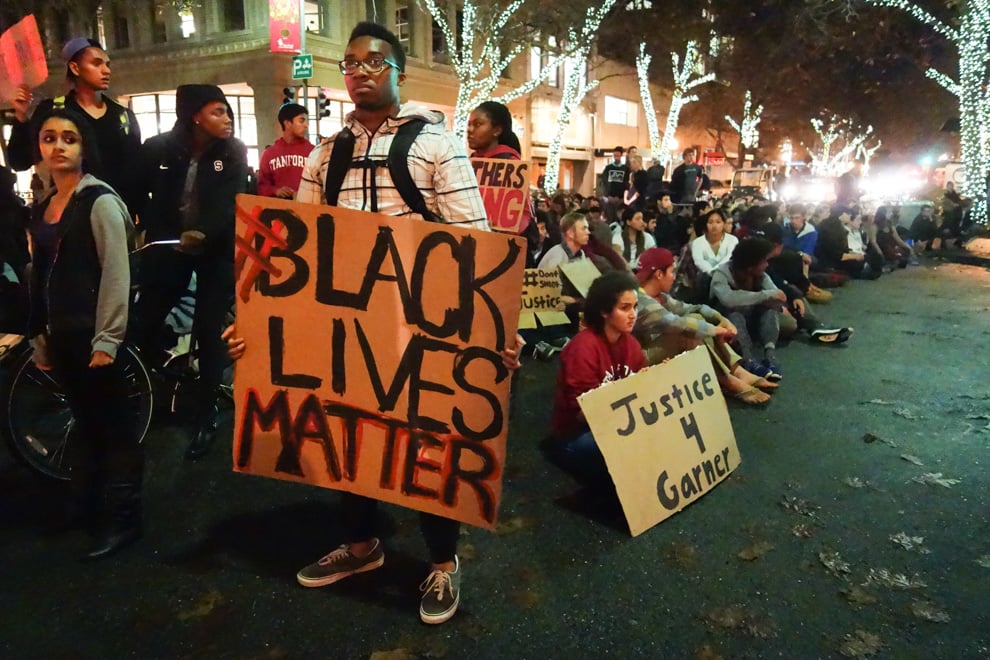I grew up hearing my family’s story: how a few Indian immigrants traveled across the world in search of opportunities for their children. My parents found themselves in underfunded schools in Queens, earned seats in some of this country’s most prestigious educational institutions and seized the American dream. I learned that America is a country where anyone could do anything, where success is a simple function of time and effort.
I carried this worldview through school — it granted confidence, instilled discipline and nurtured ambition. It coaxed me into working harder when I felt I couldn’t and motivated me to reach higher when I might’ve been satisfied.
It also shaded the way I consumed the news. I thought of racism as just another obstacle to overcome, that working twice as hard and acting twice as good could make up for others disliking one’s skin color. This philosophy whispered thoughts like “he shouldn’t have robbed a store” or “nothing would have happened if he had sold cigarettes legally,” after reading about the deaths of Michael Brown and Eric Garner. I’m ashamed for harboring these thoughts. They reflected a simplistic worldview incompatible with the reality of systemic racism.
Reading books such as Ta-Nehisi Coates’ Between the World and Me helped expose cracks in my philosophy, teaching me in theory that my family’s success is not assured to anyone who devotes the time and effort. The writings showed me that the American dream is a false promise for many — a concept I could rationally explain. But, I refused to internalize it. I could see the truth of the American dream all around me, and so my philosophy’s foundations remained strong.
Recent events, however, have shaken my beliefs. The shift started when I watched George Floyd die as he desperately called for his mom. No amount of time or effort could have saved his life once an officer had labeled him a threat for a counterfeit bill and his black skin. No amount of hard work could have saved Breonna Taylor once a judge granted a no-knock warrant and the police decided to lead with bullets instead of caution. No force of will could have changed Ahmaud Arbery’s skin color to make him appear the harmless jogger he was.
I’ve spent a long time wrestling with these thoughts, dismantling the purely meritocratic world in my mind. However, I think this world still exists for many Asian Americans and may help explain our relative hesitance to embrace the current push toward racial justice. Polling shows that compared to other people of color, Asian Americans are the least likely to support and most likely to oppose the Black Lives Matter movement.
Many Asian Americans know relatives who traveled to this country with little means and a tenuous grasp of English, who worked their hardest to secure a better life for their families. Many of us believe — as I did — that if these immigrants could succeed, so can everyone else. With these experiences in mind, it’s easy to respond to protests by arguing that time and effort in the classroom or workplace, not marches in the streets, should be the response to racism. It’s simpler to decry looting than to challenge our worldviews, more manageable to point to “Black on Black crime” than to come to terms with what our relative privilege means.
We must recognize that for Black Americans, time and effort are far less likely to pay off. Doing so does not diminish the accomplishments and struggles of our immigrant families; it simply acknowledges that others face greater difficulties. We can draw inspiration from our grandparents’ sacrifices or our parents’ hard work without rejecting the ideas underlying the Black Lives Matter movement. Striving to hold on to both truths simultaneously is the first step toward understanding the current moment.
As for my personal development, I’ve realized the limitations of my worldview. Even if it can provide motivation for my own pursuits, the concept of success as an inevitable result of hard work cannot be a universal idea I apply to everyone. I’m embarrassed it has taken me this long to realize, and I clearly have much more progress to make. I can only hope time and effort will be sufficient.
Contact Sajan Mehrotra at sajansm ‘at’ stanford.edu.
The Daily is committed to publishing a diversity of op-eds and letters to the editor. We’d love to hear your thoughts. Email letters to the editor to eic ‘at’ stanforddaily.com and op-ed submissions to opinions ‘at’ stanforddaily.com.
Follow The Daily on Facebook, Twitter and Instagram.
